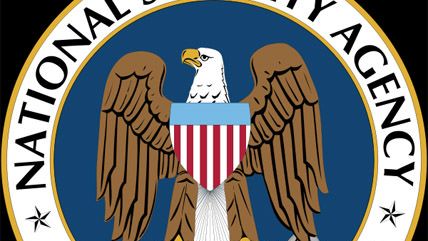Spying's the Real Story, Not Edward Snowden
The NSA presents a grave threat to liberty, but the pundits just talk about the Snowden sideshow.

I promised myself to stay away from Orwell metaphors for the duration of the latest surveillance-state controversy. But the punditocracy's recent "two-minutes hate" against National Security Agency whistleblower Edward Snowden has me backsliding already.
Judging by the vicious -- and irrelevant -- attacks on Snowden's character, all too many leading pundits and journalists love nothing more than a ritual ragegasm against an alleged enemy of the state.
The Washington Post's Richard Cohen calls Snowden a "cross-dressing Little Red Riding Hood"; he's a "total slacker" with "all the qualifications to become a grocery bagger" jeers Politico's Roger Simon. Snowden's "a grandiose narcissist who deserves to be in prison" offers The New Yorker's Jeffrey Toobin; Fox News's Ralph Peters raises the stakes: a "narcissistic traitor" who belongs on death row.
Some want to shoot the messenger, others want to give him a medal: both Michael Moore and Glenn Beck call Snowden a "hero."
So which is it: #TeamEdward or #TeamNSA? What's a fangirl to do?
That's a question best left to the teeny boppers. The content of the message is far more important than the character of the messenger.
Here, the most disturbing aspect of the Snowden revelations is the NSA's comprehensive, multiyear call-records database, with communication and phone-location information on millions of Americans. Especially if combined with metadata on emails, website visits and financial transactions that the agency is also amassing, that information is a potential treasure trove for political abuse -- it can be used to ferret out the sort of information governments have historically used to blackmail and neutralize political opponents: who's leaking, who's organizing, who's having an affair. The potential abuse of that information represents a grave threat to American liberty and privacy regardless of Snowden's character and motivations.
In an post last week, Buzzfeed's Ben Smith makes the key point: "You Don't Have to Like Edward Snowden." Snowden, Smith argues, is "a source," and the information sources convey is far more important than their "moral status" or the "fate of [their] eternal soul[s]."
Smith mentions Mark Felt, the FBI honcho who served as Woodward and Bernstein's "Deep Throat" during their investigation of the Watergate burglary and cover-up. Felt, it turned out, was simply settling scores in a bureaucratic power struggle. He had no scruples against criminal violations of privacy -- in 1980 he was convicted of conspiring to violate the constitutional rights of Americans through warrantless break-ins as part of the FBI's COINTELPRO program.
It was important for Americans to know that their president was a crook. That Mark Felt was also a crook is neither here nor there. As Smith puts it, "who cares?"
In The Washington Post, Jonathan Capehart insists that Edward Snowden was no Daniel Ellsberg, the "badass" combat veteran and defense analyst who leaked the Pentagon Papers and stood trial for it.
Again, who cares? It was important for Americans to know what that classified report revealed: that our government lied its way into the Vietnam War and lied more to keep us in it.
The government has been lying to us here as well -- and rather brazenly. In March, Senator Ron Wyden asked Director of National Intelligence James Clapper: "Does the NSA collect any type of data at all on millions or hundreds of millions of Americans?" Clapper answered, "No sir. … Not wittingly." He later defended that answer as the "least untruthful" one he could give. ("Yes," would have fit the bill better, one would think).
The debate over the content of Edward Snowden's character is a sideshow. But how we respond to what he's exposed will reveal something about our national character.
This article originally appeared in the Washington Examiner.
